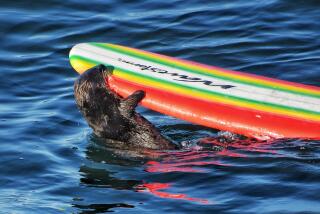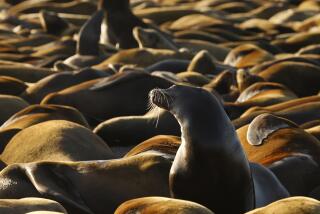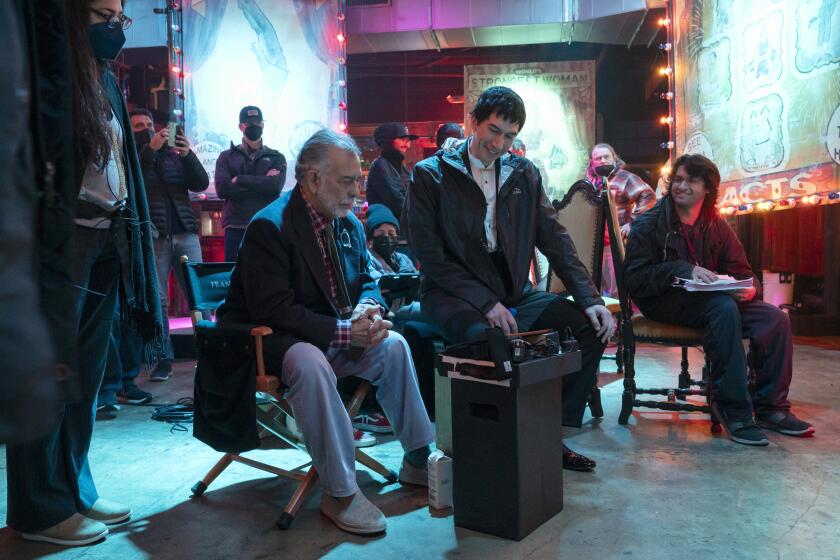‘Blackfish’ director on SeaWorld orca news: She’s optimistic, but ‘we’re not there yet’
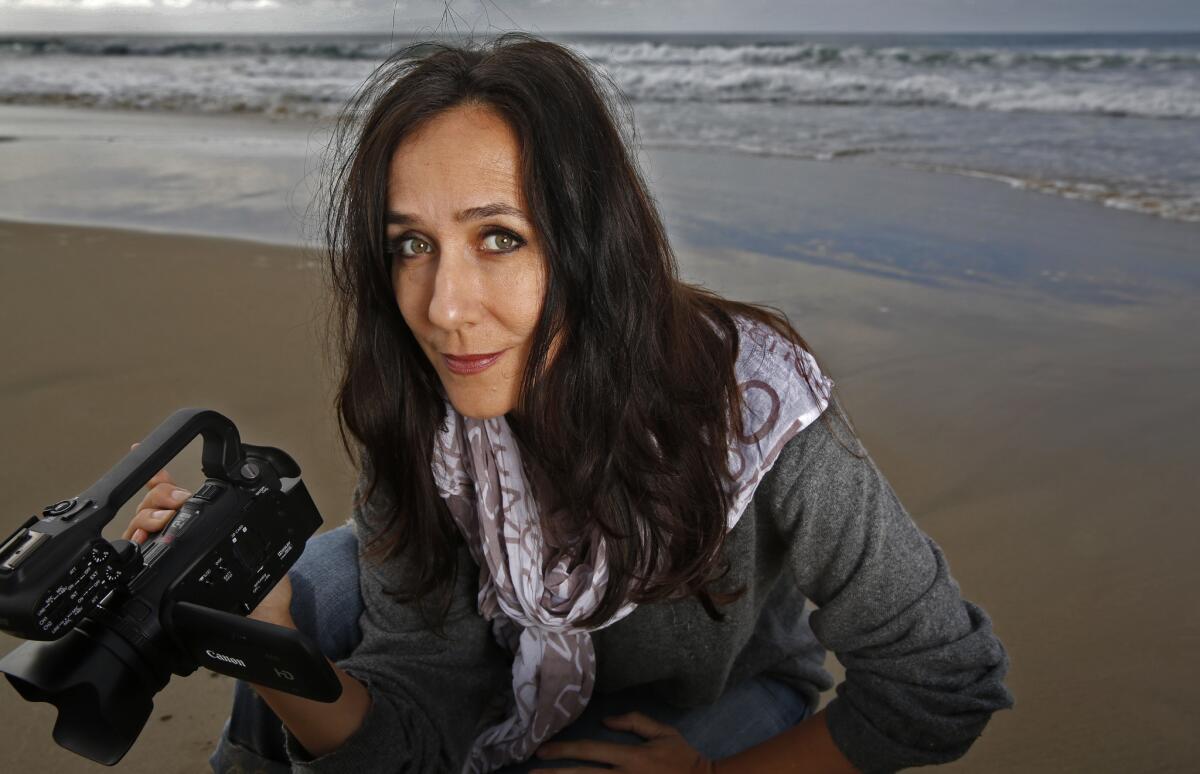
Gabriela Cowperthwaite directed “Blackfish,” which has led to change at SeaWorld.
When SeaWorld this week announced plans to phase out orca shows at its San Diego park, many immediately credited the change to the documentary “Blackfish.”
Since Gabriela Cowperthwaite’s film about whales in captivity debuted at the Sundance Film Festival in 2013, the theme park has come under public scrutiny for its treatment of performing killer whales. But despite a social media outcry and plenty of newsworthy protests, SeaWorld has largely remained reluctant to change any of its practices.
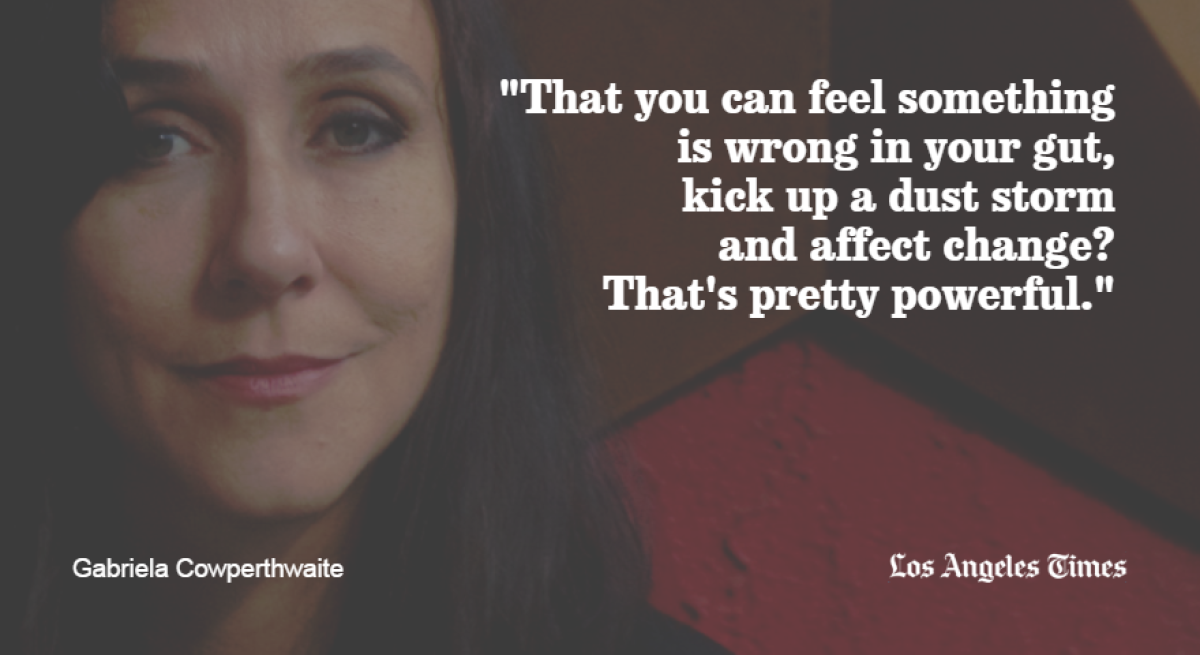
But Monday, the company said it would end its Shamu show next year at its San Diego location -- there are also parks in Orlando, Fla., and San Antonio, Texas -- and launch a “new orca presentation” in 2017 that would emphasize the “natural behavior of whales.” SeaWorld Chief Executive Joel Manby said the move did not come as a result of “Blackfish”: “We don’t do anything in San Diego in response to activists. We do it because we have heard from our guests,” he said during an investor presentation this week.
SIGN UP for the free Indie Focus movies newsletter >>
No matter the cause, Cowperthwaite was thrilled when she first heard the news. She’s currently in Cartagena, Spain, working on her debut feature film -- a biopic starring Kate Mara about an Iraq war hero who forms a special bond with her bomb-sniffing dog.
“I was at dinner with my family and suddenly my phone just started blowing up with texts and phone calls,” Cowperthwaite said late Tuesday, calling while on the way to set. “I looked at my kids and said, ‘Um, something pretty amazing just happened.’ To be able to have a lesson come full circle in such a short time? That you can feel something is wrong in your gut, kick up a dust storm and affect change? That’s pretty powerful.”
Still, once Cowperthwaite did a little more digging, she found out that the news out of San Diego wasn’t as rosy as it seemed. Here’s our conversation:
SeaWorld says its orca show is going to change by 2017. Do you buy it?
My initial excitement waned when I learned that they’re not really stopping the orca shows, they’re just going to be making the orcas perform different acts -- acts that don’t look as ludicrous and goofy. Acts that supposedly look more natural. At the end of it all, it’s still a choreographed performance. Picture less techno music and more bird chirping.
Who gave you this intel?
Sources I have who work at SeaWorld, scientists, lawmakers. They emailed me and said nothing meaningful will change for the whales. For instance, the whales might still breach, because that’s a behavior they do in the wild.
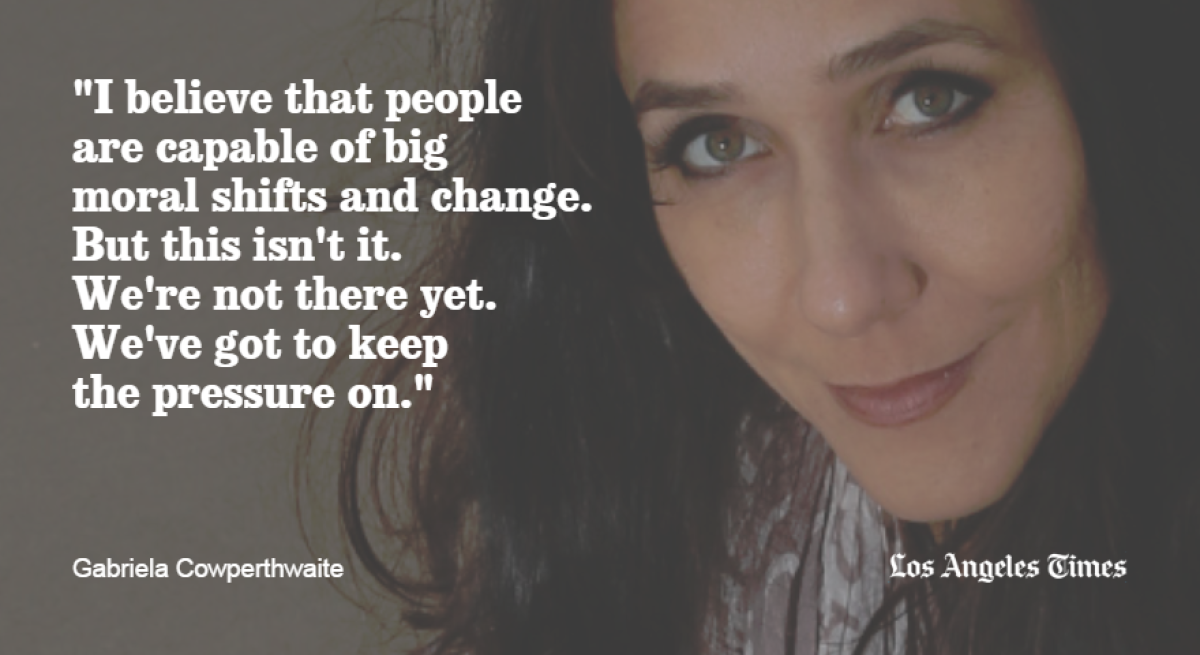
But the breaching would be prompted?
Oh, yeah. People aren’t going to pay $100 to watch trainers sit around and say, ‘hope they breach!’ A lot of the whales at SeaWorld who aren’t performing surface rest. They don’t do anything. It’s difficult to watch, so I can’t imagine people are gonna pay $100 to see depressed whales.
[In response to questions about Cowperthwaite’s claims, a SeaWorld representative pointed The Times to the company’s recent presentation for investors.
“The current theatrical killer whale show at SeaWorld San Diego will be phased out next year, to be replaced by a new orca experience in 2017,” reiterated Fred Jacobs, SeaWorld’s vice president of corporate communications. “This is in response to guest feedback we’ve received in San Diego.”]
So it sounds like you don’t think much will actually change, then?
No, listen -- if it’s the case that whales aren’t jumping up on slides and doing such obnoxious tricks, that’s still progress. That’s still this empire acknowledging they’re totally out of step with public sentiment, in some way. And there is no perfect scenario for this generation of orcas in captivity. We are pushing for the breeding to be stopped and for this generation to be put in a sea sanctuary. And I’m really, really optimistic. If I wasn’t optimistic, I wouldn’t have made “Blackfish.” I believe that people are capable of big moral shifts and change. But this isn’t it. We’re not there yet. We’ve got to keep the pressure on.
How does Kate Mara feel about the news? I know she was a big “Blackfish” supporter and even designed a “Free Tilly” t-shirt.
She was at the restaurant with me when I got the announcement, and she did a big, running jump and we were hugging.
So few films are able to affect change in the way “Blackfish” has. What was it about your movie that got under people’s skin?
I think so many things happened simultaneously. When viewers saw trainers who were complicit coming out and admitting what they did was wrong -- I think that’s really powerful. Plus, we have the science on our side. Anyone who’s not on the SeaWorld payroll has come out against the way whales are treated there. And then there’s the empathy movement. I think we saw it with Cecil the lion. All of a sudden, we’re imagining that there are other beings on this planet who have rich lives that are not totally unsimilar to ours. Watching “Blackfish,” you saw what the whales were doing to avoid being captured. You saw how they felt when they were separated from their young. That cracks open a realization for us: What the heck have we been doing all this time?
Follow @AmyKinLA on Twitter for the latest Hollywood news
More to Read
Only good movies
Get the Indie Focus newsletter, Mark Olsen's weekly guide to the world of cinema.
You may occasionally receive promotional content from the Los Angeles Times.


